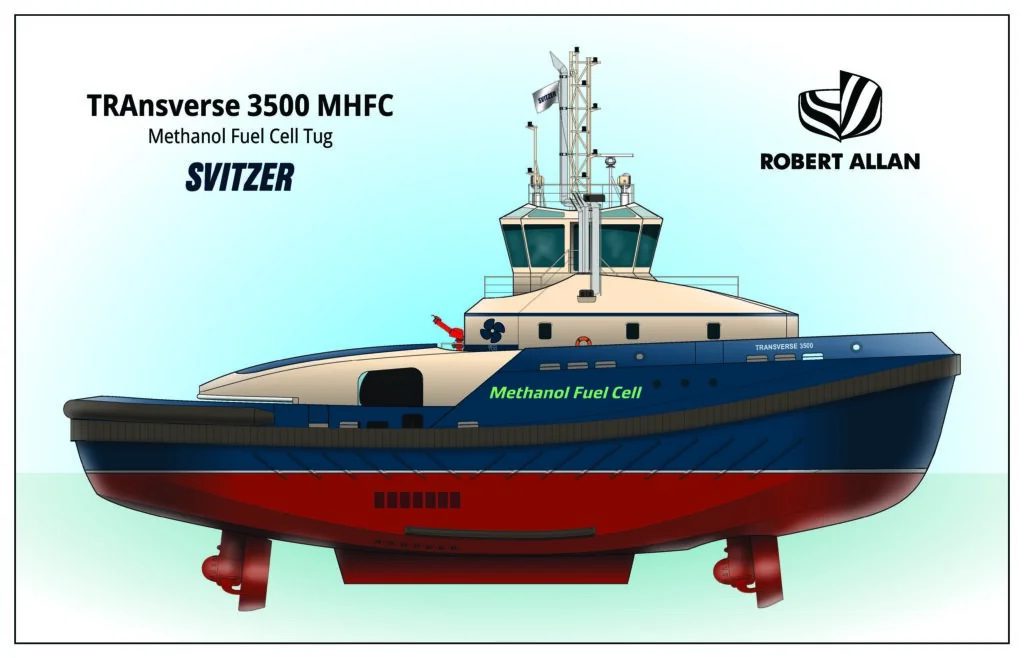Red Sea Diversions Spew Carbon Emissions Equal to 9 Million Cars
By Jack Wittels (Bloomberg) — Ships seeking to avoid ongoing attacks by Houthi rebels in the Red Sea area are emitting millions of additional tons of carbon, making it tougher for...


A preliminary illustration of Svitzer's methanol hybrid fuel cell (MHFC) tug. Image courtesy Svitzer/Robert Allan
Towage operator Svitzer has launched the second phase of its project to design the world’s first methanol hybrid fuel cell tug, with the aim of delivering a self-sustained tug with longer endurance and fewer operational constraints than a purely battery-powered vessel.
Svitzer is part of A.P. Moller-Maersk, which is aiming to achieve net zero greenhouse gas emissions in 2040 in addition to near-term reduction targets for 2030.
The methanol hybrid fuel cell (MHFC) tug will have an electrical propulsion system with methanol fuel cells and batteries. Calculations indicate that it would prevent approximately 1,300 tonnes of CO2 from being emitted into the atmosphere annually.
Svitzer will work with naval architect Robert Allan in next phase of development, which will include work to complete the vessel design, scope considerations for vessel construction, and onboard equipment selection necessary to build the vessel.
“We’re excited to enter the next phase of delivering the world’s first methanol hybrid fuel cell tug,” said Gareth Prowse, Head of Decarbonisation at Svitzer. “This project is a major milestone in Svitzer’s commitment to the decarbonisation of our global fleet and demonstrates our ability to harness new technologies and alternative fuels to deliver innovations that will have a significant, positive impact on shipping’s road to net zero.”
Svitzer and Robert Allan will use Svitzer’s TRAnsverse tug design as the platform for the vessel. Svitzer plans to partner with other companies to select onboard equipment and support construction after the design phase.
The MHFC tug is expected to begin operations in the second half of 2025 at the Port of Gothenburg in Sweden, where methanol has become the preferred low-carbon alternative fuel.
“The Port of Gothenburg has set ambitious targets to reduce shipping emissions within the port area by 70% by 2030,” said Göran Eriksson, Port of Gothenburg CEO. “To deliver on that ambition, the transition of shipping lines from fossil fuels to more sustainable fuels such as green methanol is critically important.”
“This is a major step forward in the path to decarbonizing the tug industry, and we are extremely proud to be at the forefront of developments in these new technologies,” said Jim Hyslop Director, Project Development Principle at Robert Allan.
Join the gCaptain Club for curated content, insider opinions, and vibrant community discussions.


Join the 105,830 members that receive our newsletter.
Have a news tip? Let us know.
Access exclusive insights, engage in vibrant discussions, and gain perspectives from our CEO.
Sign Up




Maritime and offshore news trusted by our 105,830 members delivered daily straight to your inbox.



Essential news coupled with the finest maritime content sourced from across the globe.
Sign Up